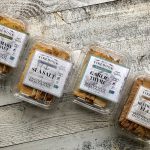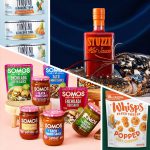Brand Innovation, Healthy Consumer Habits Propel Growth at General Mills
It used to be that when you thought of General Mills, you’d think of classic brands such as Betty Crocker, Wheaties, Cheerios and Green Giant. But listening to yesterday’s General Mills’ Q1 2016 earnings call, there was little talk of the giants. Instead the company focused on natural and healthy brands. The call revealed much about General Mills’ new product innovation pipeline, a revised focus for marketing and new attention to non-traditional grocery retailers.
General Mills’ total U.S. retail net sales growth reached four percent, but both the cereal and meals category outpaced the company as a whole with six percent growth. Yogurt came in at six percent growth as well, and snacks at two percent.
Given the examples company executives cited, much of the success in all of these categories appears to come from products that consumers see as “better-for-you.” What exactly this means varies but includes less processed, gluten-free, or simply lower calorie items. For example, General Mills touted Yoplait Plenty Greek Yogurts, Nature Valley Simply Nut Bars and Fiber One cheesecake bars as early success stories. Additionally, the company stated that it is now the country’s third largest natural and organic food manufacturer.
That said, it’s not just about being healthy. Currently, General Mills’ product line spans 25 categories and three grocery temperature states. While some products are single category specific, the company is trying to grow the brands so they can operate across different categories.
For example, with Fiber One, General Mills plays in dairy, snack, cereal and bread. With Cascadian Farms it’s in cereal, snack, frozen fruit & vegetables, condiments and jam. The construction is multi-category brands instead of vertically focused product lines. General Mills creates a brand halo that permeates the customer’s psyche wherever they shop. This is beneficial, if, as it was stated on the call, there are fewer in-store promotional opportunities and the effectiveness of such activities is dropping.
With Annie’s, General Mills’ most recent acquisition, the company not only has a healthy/natural brand to rally behind, it is now working on expanding its category reach — and it’s bringing the company’s other brands to the table to help out. Recently, for example, the company launched Annie’s soups (which it developed with its Progresso brand), and next January it will launch a yogurt line (which Yoplait helped create).
According to a recent article in The Wall Street Journal, over the past 12 months Annie’s released 54 new product varieties, compared with 29 the year prior. Annie’s markets itself as a healthy lifestyle brand, and now it’s adding to its reach and depth. The company said it is working on growing the shelf presence for the top 33 Annie’s SKUs, which, somewhat surprisingly considering its “natural products role model status,” only have 30 percent average distribution nationally.
The General Mills presentation also made mention of the company’s desire to “win in snacking occasion.” And that’s certainly what the company is trying to do with several new products. For instance, with Yoplait Plenti, a Greek yogurt blended with oats, grains, seeds and fruit, the brand plays in both breakfast food and hearty snack categories. And Nature Valley Granola bites are designed to bring granola on the road, no milk required.
On the earnings call, General Mills discussed its different retail strategies, which reflect how decentralized American grocery shopping has become. In club retailers like Costco and BJ’s, for example, one of General Mills’ strategies is to launch limited edition or exclusive items, such as Larabar almond butter, which Shawn O’Grady, General Mills Senior Vice President and President, Sales and Channel Development, says appeals to the “treasure hunt mentality of shoppers.”
And as drug and dollar stores have now increased their focus on food, General Mills is taking note. Both the rise of healthy snacks and fresh/perishable foods have shifted over the last few years as consumers are on-the-go and price-sensitive.
Finally, General Mills made a point of calling out e-commerce (its fastest-growing channel) and the fact that it has established an e-commerce Center of Excellence. Chairman and CEO Kendall Powell noted that while e-commerce is not a currently a huge source of revenue in the U.S., he believes that growth will follow in the footsteps of Europe. In the U.K .and France, for example, Powell noted that some of General Mills’ categories see online sales account for 10 percent of total sales. While U.S. e-commerce sales are far below this, he expects the number will substantially increase over the next few years.













